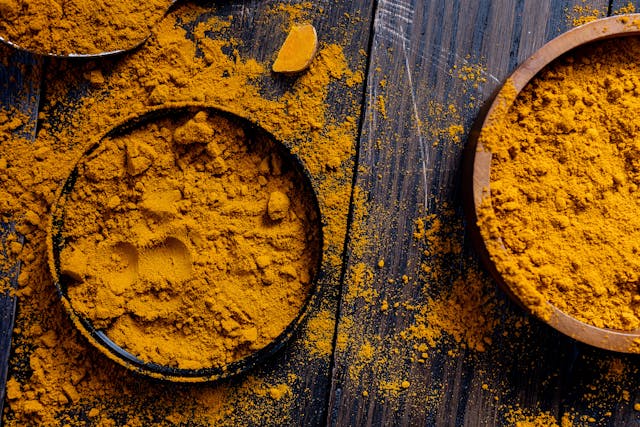
Benefits of supplements
Turmeric, often referred to as the “golden spice,” is a vibrant yellow-orange root derived from the plant Curcuma longa.
Native to South Asia, turmeric has been used for thousands of years, both as a culinary ingredient and as a medicinal herb. Its deep color, earthy flavor, and potent health tumeric benefits have made it a staple in traditional medicine systems like Ayurveda and Traditional Chinese Medicine (TCM).
In recent years, turmeric has gained global recognition for its remarkable health properties. This is largely attributed to its active compound, curcumin.
Historical and Cultural Significance
Turmeric holds a revered place in many cultures, particularly in India. It is considered sacred and is an essential part of daily life. It is used in religious rituals, as a dye, in beauty treatments, and as a natural remedy for various ailments.
In Indian cuisine, turmeric is a key ingredient in curries, imparting a warm, slightly bitter flavor and a bright yellow hue to dishes. Its use in traditional medicine dates back over 4,000 years. It treats a range of conditions from digestive disorders to respiratory issues.
Health Benefits of Turmeric
Anti-Inflammatory and Antioxidant Properties
Curcumin, the primary bioactive substance in turmeric. It is known for its potent anti-inflammatory and antioxidant effects. Chronic inflammation is a common factor in many diseases.
They include heart disease, cancer, and Alzheimer’s. Curcumin can inhibit the activity of several enzymes involved in inflammation .This helps to to reduce the risk of chronic diseases.
Additionally, its antioxidant properties help neutralize free radicals in the body. This protects the body from oxidative stress and cellular damage.
Supports Joint Health
Tumeric benefits are evident in managing arthritis and other joint-related conditions. Its anti-inflammatory properties help reduce pain and swelling in joints.
This makes it a popular natural remedy for osteoarthritis and rheumatoid arthritis. Some studies suggest that turmeric supplements can be as effective as non-steroidal anti-inflammatory drugs (NSAIDs) in managing arthritis symptoms, without the associated side effects.
Promotes Digestive Health
Turmeric is traditionally used to support digestive health. This is among the tumeric benefits. It stimulates bile production, which aids in the digestion of fats.
This can be particularly beneficial for individuals with digestive disorders such as bloating, gas, and indigestion. Turmeric also has a soothing effect on the gut lining.
This makes it useful in managing conditions like irritable bowel syndrome (IBS) and inflammatory bowel disease (IBD).
Enhances Brain Function
Emerging research suggests that among the turmeric benefits is that curcumin may have neuroprotective effects. This therefore helps to enhance brain function and reduce the risk of neurodegenerative diseases. Curcumin has been shown to increase levels of brain-derived neurotrophic factor (BDNF).
This is a protein that promotes the growth and survival of neurons. Low levels of BDNF are associated with conditions like depression and Alzheimer’s disease.
By boosting BDNF, turmeric may help improve mood, memory, and cognitive function.
Anti-Cancer Potential
Curcumin has been studied for its potential anti-cancer effects, with research suggesting that it may inhibit the growth and spread of cancer cells.
Its ability to reduce inflammation and oxidative stress, along with its impact on various molecular pathways involved in cancer development, makes it a promising candidate for cancer prevention and treatment.
However, more clinical studies are needed to confirm its efficacy in humans.
Specific Benefits of Tumeric for Men
Turmeric may offer particular health benefits for men. This is especially in regard to prostate health. Some studies suggest that curcumin can help prevent or slow the growth of prostate cancer cells.
Additionally, turmeric’s anti-inflammatory properties may improve male reproductive health by enhancing sperm motility and reducing oxidative stress, which can affect sperm quality.
Its cardiovascular benefits are also significant for men, who are at higher risk for heart disease, particularly as they age.
Turmeric Capsules: A Convenient Supplement Option
For those looking to incorporate turmeric into their daily routine without the hassle of cooking with it, turmeric capsules offer a convenient alternative.
The tumeric benefits here are because the supplements typically contain curcumin extract, often in combination with black pepper to enhance absorption. Turmeric capsules are popular for their ease of use and consistent dosage hence making it easier to reap the health benefits of curcumin.
They are widely available in health food stores and online, and they are often recommended for individuals dealing with chronic inflammation, joint pain, or other conditions that may benefit from curcumin’s therapeutic effects.
Culinary Uses of Turmeric
Turmeric’s earthy and slightly bitter flavor makes it a versatile ingredient in the kitchen. It is commonly used in Indian, Southeast Asian, and Middle Eastern cuisines to add color and flavor to dishes. Here are some popular culinary uses of turmeric:
- Curries and Stews: Turmeric is a key ingredient in curry powders and pastes, providing a rich yellow color and a warm, earthy flavor to curries and stews.
- Golden Milk (Turmeric Latte): Golden milk, also known as turmeric latte, is a popular health drink known for its anti-inflammatory and immune-boosting properties.
Here’s how to make it:
Ingredients: 1 cup of milk (or plant-based milk, such as almond or coconut milk)1 teaspoon of ground turmeric1/2 teaspoon of ground cinnamon1/4 teaspoon of ground ginger (optional)A pinch of black pepper1 teaspoon of honey or maple syrup (optional, for sweetness)
Instructions: In a small saucepan, combine the milk, turmeric, cinnamon, ginger, and black pepper. Heat over medium heat, stirring constantly, until the mixture is hot but not boiling. Remove from heat and let it cool slightly. Add honey or maple syrup to taste. Pour into a mug and enjoy warm. This comforting drink can be consumed daily for its potential health benefits, particularly for reducing inflammation and boosting immunity.
Rice and Grain Dishes: Adding turmeric to rice or quinoa gives the dish a vibrant color and a subtle flavor, hence making it a visually appealing and nutritious addition to meals.
Smoothies: A pinch of turmeric can be added to smoothies for a nutritional boost. Pair it with ingredients like ginger, banana, and coconut for a tropical twist.
Baked Goods: Turmeric can be used in baking to add color and a hint of spice to bread, muffins, and cakes.
How to Remove Turmeric Stains
Turmeric’s bright yellow hue is one of its most appealing qualities, it can also be a challenge when it comes to stains. Whether on clothing, countertops, or cookware, turmeric stains can be stubborn.
Here’s how to tackle them: On fabric act quickly. The sooner you treat the stain, the better. Rinse the stained area with cold water to remove as much of the turmeric as possible. On Countertops use a Baking Soda Paste .Mix baking soda with a small amount of water to create a paste.
Apply it to the stained area and let it sit for a few minutes. Scrub gently with a soft cloth or sponge to scrub the area g. Avoid abrasive materials that can scratch the surface. On hands use lemon juice or baking soda. Rub gently on your hands then rinse off with water.
Read Also: Benefits of Cloves
In Summary
Turmeric is more than just a spice as it is a powerful natural remedy with a wide range of health benefits. Whether used in cooking, as a supplement, or as a traditional remedy, turmeric can support overall health and well-being.
As research continues to uncover the potential of this golden spice, its role in both the kitchen and the medicine cabinet is likely to grow, making it a valuable addition to any diet.





